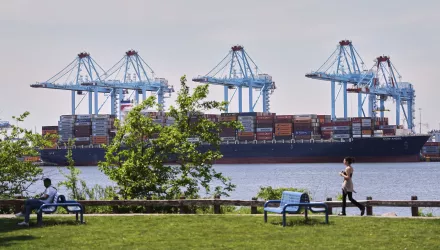Summary
Human activity is causing irreversible harm to the climate system and environment. The Kyoto Protocol is only a good starting point to raise the awareness of climate change. However, this protocol failed to address some core issues, such as setting targets based on a fair and efficient burden-sharing principle, effectively engaging developing countries, setting a long-term goal, implementing cost-effective policy instruments with given binding target, non-compliance penalties and etc. Therefore, whether society can stabilize the global climate without stifling development aspirations, would rely on whether we can design a fair and efficient climate change policy architecture for the post-2012 era.
For this purpose, this paper provides a new multi-stage climate policy framework based on a revised Global Development Right (GDR) calculation, and proposes a feasible hybrid negotiation framework from the perspective of developing countries. According to the "common but differentiated responsibilities and respective capabilities" principle in the United Nations Framework Convention on Climate Change (UNFCCC), we recognize that due to the historical emissions contributions and different pace of industrialization and growth around the world, a successful international climate policy needs to balance equity and efficiency and eventually achieve an overall carbon mitigation target.
In this paper, we first discuss a multi-stage framework to gradually engage developing countries, which can be adapted to incorporate Kyoto Protocol flexibility instruments such as cap-and-trade. Then we propose a clear and potentially acceptable burden-sharing principle, by balancing equity and efficiencies, capacity and responsibility through a global development right (GDR) framework. We extend the original GDR calculations in Baer, Athanasiou and Kartha (2007), by incorporating cumulative historical carbon emissions back to the 19th century, and taking into account carbon sinks in the burden-sharing framework. Though all greenhouse gases would in principle be covered, this paper only address fossil fuel based carbon emissions, which contribute to 76% of global warming effects (USEPA, 2006). Extensions can be easily made to incorporate all greenhouse gases using historical accumulative by-country non-GHG emission data. For the practical matters, we also discuss a hybrid negotiation framework and how it can integrate the proposed GDR burden-sharing framework. Finally, to illustrate the developing country perspective, we use China as an example to present the possible opportunities and future challenges in coping with the future climate crisis.
In sum, climate change is a very complicated problem that requires an urgent, fair and effective international climate change policy regime. The sooner we can break the current political climate impasse, and build the post-2012 architecture, the better chances we will have to stabilize the global climate for our future generations.
Cao, Jing. “Reconciling Human Development and Climate Protection: Perspectives from Developing Countries on Post-2012 International Climate Change Policy.” Harvard Project on Climate Agreements, December 2008





